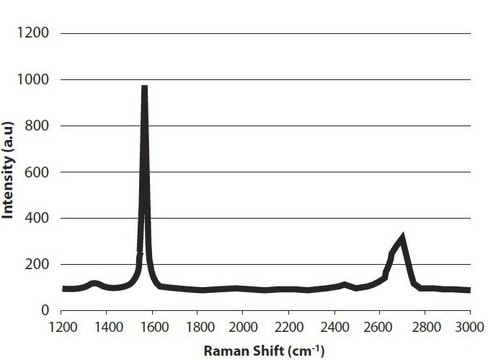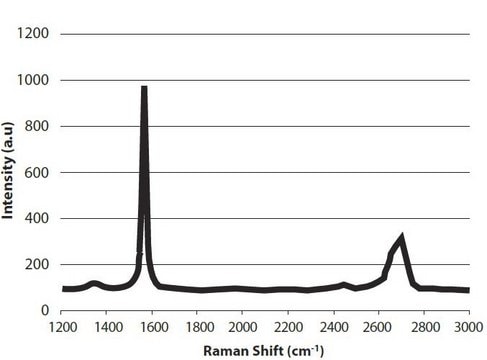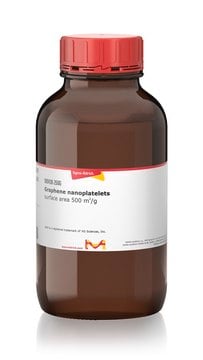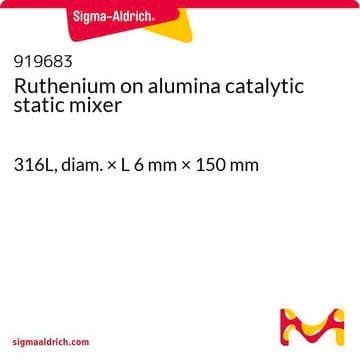900410
Graphene nanoplatelets
15 μm particle size
Sinónimos:
xGnP H-15
About This Item
Productos recomendados
description
oxygen content: <1%
residual acid content: <0.5 wt%
Quality Level
form
powder
surface area
50-80 m2/g
thickness
15 nm , average
particle size
15 μm
bulk density
0.03‑0.1 g/cm3
InChI
1S/C
InChI key
OKTJSMMVPCPJKN-UHFFFAOYSA-N
¿Está buscando productos similares? Visita Guía de comparación de productos
Categorías relacionadas
General description
The unique size and platelet morphology of xGnP® graphene nanoplatelets makes these particles especially effective at providing barrier properties, while their pure graphitic composition makes them excellent electrical and thermal conductors. xGnP® graphene nanoplatelets can improve mechanical properties such as stiffness, strength, and surface hardness of the matrix material.
xGnP® graphene nanoplatelets are compatible with almost all polymers; and can be an active ingredient in inks or coatings as well as an excellent additive to plastics of all types. The unique manufacturing processes are non-oxidizing; so material has a pristine graphitic surface of sp2 carbon molecules that makes it especially suitable for applications requiring high electrical or thermal conductivity.
Grade H particles have an average thickness of approximately 15 nanometers and a typical surface area of 50 to 80 m2/g. Grade H is available with average particle diameters of 5, 15 or 25 microns.
Note: Graphene nanoplatelets have naturally occurring functional groups like ethers, carboxyls, or hydroxyls that can react with atmospheric humidity to form acids or other compounds. These functional groups are present on the edges of the particles and their wt% varies with particle size.
Application
- Ultra capacitor electrodes.
- Anode materials for lithium-ion batteries.
- Conductive additive for battery electrodes.
- Electrically conductive inks.
- Thermally conductive films and coatings.
- Additive for lightweight composites.
- Films or coatings for EMI shielding.
- Substrate for chemical and biochemical sensors.
- Barrier material for packaging.
- Additive for super-strong concrete.
- Additive for metal-matrix composites.
Legal Information
Storage Class
11 - Combustible Solids
wgk_germany
WGK 1
flash_point_f
Not applicable
flash_point_c
Not applicable
Certificados de análisis (COA)
Busque Certificados de análisis (COA) introduciendo el número de lote del producto. Los números de lote se encuentran en la etiqueta del producto después de las palabras «Lot» o «Batch»
¿Ya tiene este producto?
Encuentre la documentación para los productos que ha comprado recientemente en la Biblioteca de documentos.
Artículos
Advances in scalable synthesis and processing of two-dimensional materials
Nuestro equipo de científicos tiene experiencia en todas las áreas de investigación: Ciencias de la vida, Ciencia de los materiales, Síntesis química, Cromatografía, Analítica y muchas otras.
Póngase en contacto con el Servicio técnico








